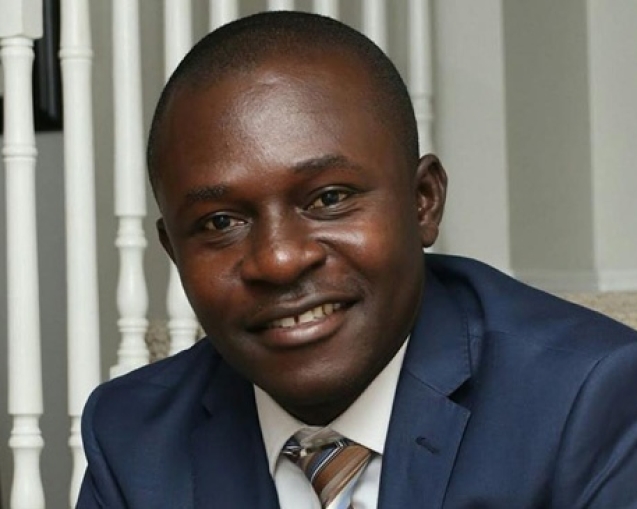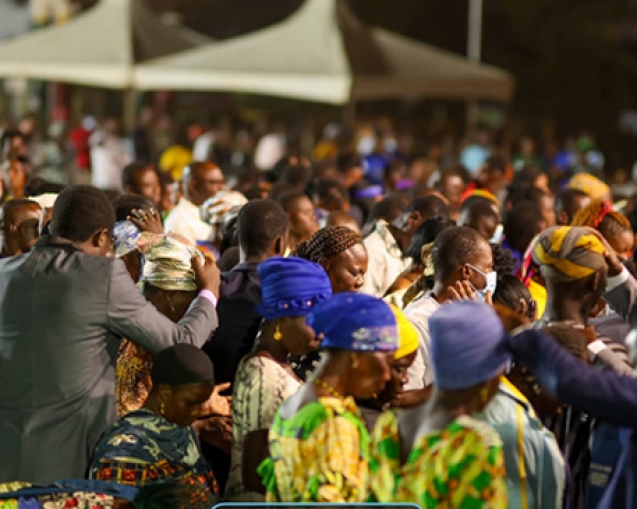Jesus Must Die
The Jewish religious leaders had finished cross-examining Jesus. He had been tried before Annas, the father-in-law of the High Priest (John 18:13, 24), Caiaphas, the High Priest, (John 18:24) and the whole Sanhedrin (Matt. 26:57). The verdict from this trial was: He has spoken blasphemy; He must die! (Matt. 26:63-66).
They wanted him dead but guess what, they were too religious to kill Him with their “holy” hands, so, they resolved to employ the “sinful” hands of the Romans to execute their judgement.
We Must Liaise With the Secular Government to Deal With Him
It was very early in the morning. Pilate had barely risen up from his sleep. The ignorant crowd together with the conspiring Jewish leaders brought Jesus to Pilate’s court. They brought Him to Pilate manhandled, and bound.
Bringing him to Pilate was the beginning of a secular trial to obtain a legal permit to execute Jesus as they had resolved. After a series of cross-examinations, Pilate realized that Jesus was innocent. The Jewish leaders had only brought Him there because of envy (Matt. 27:18). His wife confirmed his convictions about Jesus when she sent a word of caution to him while he sat on his judgement seat. She cautioned, “Have nothing to do with that just Man, for I have suffered many things today in a dream because of Him.” (Matt. 27:19).
Pilate is now in a Dilemma
Pilate sat in his judgement seat confused. He had been put on the spot. An urgent decision must be made. A verdict must be passed. Neutrality was impossible. By all means, he had to take sides, but which side? A sentence must be passed on Jesus, the Son of God. The crowd and the Jewish leaders were resolute: Jesus must die because He is blasphemous; He makes Himself God (which He indeed was). Pilate is in danger of coming into conflict with Caesar, his boss. How does he keep a friendship with Jesus and Caesar at the same time?
His strategy to outsmart the Jews by pairing Jesus with Barabbas, a murderer had proved futile. They had denied Jesus, “the Holy One and the Just, and asked for Barabbas the murderer” to be released to them. They had delivered Jesus, the Author of life to death instead of the murderer (Acts 3:14-15).
Pilate’s Dilemma
Finding himself in a great dilemma, Pilate asked the crowd, “What shall I do with Jesus who is called the Christ?”
Which Option is Best?
Should I follow the example of the greedy Judas Iscariot in selling Jesus for money or I should follow the steps of the fearful Peter to deny Him before people to save myself from persecution?
Should I follow the demands of the envious and corrupt Jewish religious leaders to crucify Jesus Christ so that the merchandise and exploitation in the house of God could continue or I should follow the example of Nicodemus and Joseph of Arimathea to become secret followers of Jesus Christ for the fear of men?
Should I follow the example of the unbelieving and sinful soldiers in mocking and humiliating Jesus, only to realize in the end that truly, He was the Son of God when it is too late (Matt. 27:54) or I should follow the example of the selfless Simon of Cyrene in giving myself to carrying the cross of Christ daily and also to believe on Him to give me the assurance of paradise (heaven) even while I am still on earth like He did with the repentant thief on the cross?
Pilate Makes a Grave Mistake
Unfortunately, Pilate made a grave mistake in resolving his dilemma. Instead of taking responsibility for resolving it himself, he decided to allow the crowd to influence him to do so.
Therefore, Pilate asked the crowd, “What shall I do with Jesus who is called the Christ?” They all answered, “Crucify Him!” When Pilate realized that their response conflicted with his personal convictions about the Christ, he retorted, “Why? What crime has He committed?” But the crowd shouted even louder, “Crucify Him!”
Sorry, Pilate, You Cannot Shirk This Responsibility!
Now, when Pilate saw that he was getting nowhere with the crowd, but that instead, an uproar was starting, he took water and washed his hands in front of the crowd. By that act, Pilate was signifying to the crowd that he was not responsible for his decision but the crowd was. He was shirking his personal responsibility for resolving his dilemma about Jesus Christ to the crowd but it never worked. Centuries later, our creeds will still read that Jesus “suffered under Pontius Pilate!” He could not be innocent after all. History did not allow it to be so and eternity will not be any different!
Pilate’s Dilemma is Humanity’s Dilemma
“What should I do with Jesus Christ” is every human’s dilemma. Every one of us must personally decide on what to do with Jesus, who is called the Christ. None of us can be neutral to this dilemma. It is a must-choose, for there is no middle ground!
Today, God has granted that every human being who walks the face of this earth sits on their judgement seat like Pilate did, ‘cross examine’ Jesus, and pronounce their verdict of what they will do with Him who is called the Christ (John 3:18-19) while being mindful that soon, Jesus will also sit on His judgement seat and pronounce His judgement on every single human being according to what they chose to do with Him. (Matt. 26:64; 2Cor. 5:10).
Those who denied Him before men, He will also deny before God (2Tim. 2:12; Luk. 9:26); those who scorned at His instructions and beckoning, He will also treat light when calamity falls on them (Prov. 1:24-27); but those who believed in Him, He will give them the power to become the children of God (John 1:12). Now, is the decision time. What will you do with Jesus, who is called the Christ?
Written by P/Ovr. Isaac Kwabena Tagoe (CoP, Nanton, Tamale)


















